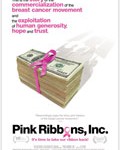Like many readers of this blog, I have been exchanging emails with Dr. George Scangos, CEO of Biogen Idec, the company running the clinical trial in which I am a participant. The trial is testing the efficacy of a drug called “dex” for short. (Thanks so much to all of you who wrote to him for your support.)
The upshot of our “conversation” is that company will not allow me to remain in the trial if
get a diaphragm pacer before the trial ends sometime in September. If I do so, they will exclude me from eligibility for dex if and when it becomes open label.
In the interest of transparency, my email exchange with Dr. Scangos is copied here. I have a few observations, and a new call to action for those who care about these issues.
EMPOWER?
The dex trial being run by Biogen Idec is called EMPOWER (in all caps, no less). Given how the company is interpreting the rules of this trial, I think there is little doubt that only the company and its shareholders will be empowered if this trial is a success. The power of ALS patients, including those who, like me, have given more than a year of time and effort (and considerable amount of bodily fluids) to the trial, seems to be way down the list.
My Crap Shoot
It’s possible that this trial will be a failure, in which case my concerns about access to dex if I’m forced out of the trial will be moot.
If the trial is positive, I may be in trouble, or I may not be. If I’m currently on placebo, the  drug might help me. That’s trouble if I have to wait to get it.
drug might help me. That’s trouble if I have to wait to get it.
If I’m currently on the drug, I may have gotten all the benefit possible from it already, in which case my being booted out of the trial won’t matter. It’s also possible, that, if I’m currently taking the drug, stopping it has adverse effects. Again, that’s trouble.
In the midst of this dilemma, I have to make some decisions about what is best for my health. Against these various outcomes, do I get a diaphragm pacer now in hopes that will provide me more benefit than the drug might if proves effective, or do I wait until the trial becomes open label — maybe an extra two months — so I can be eligible to the obtain the drug on open label if the trial is a success? If I do the latter, at what cost to my health from delaying the pacer?
The bigger question is why any patient with ALS should be faced with this kind of dilemma. Biogen Idec has the power to remove this question from the debate, but it refuses to do so.
What Biogen Says versus What It Does
As you will see from the emails below and others in previous posts on this topic, Biogen Idec says it is committed to finding effective treatments for ALS and getting them quickly into the hands of patients.
Biogen Idec, through its CEO, also says this: “It is an ethical consideration to allow patients who have participated in the trial to benefit from the drug, should it prove to be efficacious.”
And this: “If you decide to have the pacemaker and come off the trial, the data from your participation will be counted up until the time that you leave the trial. You still will have contributed to the trial and to the development of what we hope will be an important therapy for ALS patients.”
So here’s the deal Biogen Idec is “giving” me and patients like me: if we are booted out of the trial by seeking other treatments, the data from our participation (in my case, at least 14 months of data for a trial where minimum participation is 12 months) will be analyzed as part of the evaluation of drug efficacy. If the drug proves to be effective, however, we will not automatically receive it, we will have to plead for it. Others who decide to remain hostage to these trial rules will be automatically given it as part of trial design.
 In other words, Biogen Idec will receive all the benefit it possibly can from our participation, but our benefit, if any, will be limited to the effects we may have received from the drug — if we were on it — while we were included in the trial.
In other words, Biogen Idec will receive all the benefit it possibly can from our participation, but our benefit, if any, will be limited to the effects we may have received from the drug — if we were on it — while we were included in the trial.
Time to Make Drug Trials Work for Patients
The FDA has a role in setting drug trial rules. Biogen Idec claims to be hampered in part by those rules. While I continue to believe that the company in this case is unnecessarily using these rules to the disadvantage of patients like me, they are not budging.
So it’s time to go to the FDA to demand change. If you agree that these trial rules, as interpreted, are unfair to ALS patients, let the FDA know it. Tell the FDA to make Biogen  Idec do the right thing.
Idec do the right thing.
And suggest to the FDA that they require drug companies in large ALS trials to have an independent ombudsman to address patient concerns. The CEO of a company cares about the company; patients needs are secondary.
>The Director of the office of the Center for Drug Evaluation and Research is Dr. Janet Woodcock. Her email address is Janet.Woodcock@fda.hhs.gov
> The FDA Commissioner is Margaret Hamburg. Her email address is margaret.hamburg@fda.hhs.gov.
> Please send a copy of your message to the FDA to Dr. George Scangos at Biogen. His email address is: george.Scangos@biogenidec.com.
> And please send a copy of your message to the FDA to my neurologist, Dr. Jonathan Katz. His email address is katzjs@sutterhealth.org.
Please copy anything you send as comment to this post. And thanks for caring what happens to people.
© Barbara A. Brenner 2012
************************************
Email exchange July 23, 2012
Dear Dr. Scangos,
Thanks for your message. See my reply below [in italics] in the interest of what I hope will be clear communications.
Barbara
Dear Ms. Brenner,
We would love to honor your request, but I am very sorry to say that we can not do so. The reasons are complicated, and perhaps Doug and I have not been clear in our explanations why, so I’m going to give it one more try.
1. The trial protocol does not mandate that each patient stay on the trial for one year. The trial protocol requires that all patients stay on the trial until the last patient completes one year of treatment. It is designed that way so that most patients will be on study for more than one year to satisfy the views of the regulatory agencies here and in Europe. We can not change those rules in the middle of the trial.
BB: When you say “so that most patients will be on study for more than one year,” I cannot believe the regulatory agencies where vague what constitutes “most patients.” Can you share that information with me (and those copied on this message), as well as the number of patients that have been one the study for more than a year and for how long; and the total number of patients in the study?
2. The subgroup analyses that you suggest are not feasible for a range of statistical, medical, and regulatory reasons.
BB: I would like an explanation of these reasons. But I think it requires knowing the information about the number of patients in the trial and how many have been in the trial for more than a year, and for how long.
3. The trial protocol does not allow the type of treatment that you are seeking.
BB: The treatment I am seeking was not, if my memory serves, approved by the FDA when this trial started. If I’m correct about this, it’s not that protocol excludes the treatment; it wasn’t considered one way or another. And why are you allowing this treatment on the open label phase of the study but not for patients who have been on the study more than a year.
4. Exceptions to these rules jeopardize the power of the trial and thus the availability of Dexpramipexole to all patients with ALS if it is indeed shown to provide an acceptable risk/benefit profile.
Please believe me that we have no reason to want to deny your request. We have devoted ourselves to trying to help patients with ALS and other neurodegenerative diseases and would love to grant your request and help you. I have tried to respond personally to your email and to the emails of your supporters rather than sending a rote response because of the obvious sincerity and depth of the requests. However, I don’t want to stretch this issue out. As heart-wrenching and difficult as it is, we must stand by our decision in the interest of all patients with ALS.
On a personal note, I want to you to know that my thoughts and prayers are with you. We obviously don’t know each other, but you must be an extraordinary person to have such a large collection of people who care so deeply about you. And just so you know, the reply I sent to your supporters was not canned, as you state on your blog. I wrote it myself on Saturday trying to explain the reasoning for our decision. I’m sorry if it appeared canned, but I was just trying to get the same information to all of the people who wrote.
BB: Thank you for your thoughts and prayers. What I need is more thought by people like you as to how to best meet the needs of ALS patients for whom time is so short.
I’m sorry for offending you by saying your response was canned. I’m should have said “identical.”
********************************
Message sent July 24, 2012
Dear Dr. Scangos,
In thinking more about our exchange, I wonder if you perceive as I do that my situation, like the dex trial in general, has the capacity to provide information that will benefit all ALS patients? If others, like me, spend many months in the trial, and then go one to take advantage of another therapy, what might that tell us about mutiple treatment modalities and their effectiveness? Since, in most health settings, this is how treatment works, I suspect and hope that, as more treatments become available for ALS, we will get more information like this of value of patients. Why not start here?
I was also wondering whether, if I’m forced out of the trial before the open label period by a decision to get a pacer, will the data the company has collected from my participation nonetheless be evaluated in the trial results?
Thank you.
Barbara
*********************************************************************************************
Reply received July 24, 2012
Hello Barbara,
You are right in saying that in most health settings, at least in the US, patients and physicians take advantage of multiple modes of treatment to maximize the benefit they receive. There are many things about our health care system that can be improved, but that flexibility is one of the good aspects of our system. In a clinical trial, the situation is different, of course. The purpose of the trial is to determine if a particular treatment, in this case Dexpramipexole, is safe and provides a benefit to patients. For that reason, the effect of the tested treatment has to be isolated from other treatments that affect outcome. The reason that you want the pacemaker is that there is a good chance that it will improve your breathing and make you feel and function better. That potential improvement as a result of the pacemaker can mask the impact that Dex has. If you are on the drug arm, it can make the drug look artificially good, and if you are on placebo, it can make the drug look less good than it actually is. What we are trying to accomplish is a clear outcome that will accurately determine the safety and effectiveness of Dex, so that if it is positive, we can get it to the maximum number of patients in the shortest possible time.
If you decide to have the pacemaker and come off the trial, the data from your participation will be counted up until the time that you leave the trial. You still will have contributed to the trial and to the development of what we hope will be an important therapy for ALS patients.
There is something else that you should know. We obviously don’t know at this point if Dexpramipexole is working or not, but we will know later this year. In the case where it does turn out to be positive, we want to be able to make it available to some ALS patients even before it is approved by the FDA. We are making enough of the drug to be able to do so, and we are having discussions with the FDA about how to ethically and legally conduct such a program. Although our plans are not yet finalized, we probably will seek to make the drug available through centers that participated in the clinical trial. Since you are obviously being treated at one of those centers, should you come off the trial, the drug may still be available to you through that program. My best guess is that the program will be available early next year. Of course if the outcome of the trial is not positive, then this is all moot.
I talked today with the head of the Massachusetts Chapter of the ALS Association and with an ALS patient here in Boston. We had them in to talk with our employees at lunchtime as part of our ongoing program to make sure that all of our employees understand what is at stake. I hope that for their sake, for yours, and for all patients with ALS that our trial is successful and that we are able to offer at least some relief to patients.
Sincerely,
George Scangos
***************************************************************************************
My reply to the above message, July 24
Hello, George,
Thanks for this.
I understand the difference between general health settings and clinical trials.
I appreciate that if I get a pacer and am forced out of trial, you will still count the data received from me up until that point and that you recognize that my participation will have contributed to the knowledge about the effectiveness of dex.
What I’m still puzzled by is the timing issue and why it makes so much difference. If I get the pacer in the next month, before the September trial cut off, that means you will have one less month of data for me for the trial because you don’t want to run the risk that, in month’s time, the pacer could mask the benefits of the drug. But, after September, when I assume you will continue to follow patients after the drug goes to open label, you’re not concerned about that masking effect because you will allow patients in the trial to then have pacers. Why does it matter in August, but not September?
You have addressed a lot of my concerns here. I now understand that your goal is to make the drug, if it shows benefit, available to centers that participated in the trial, including Forbes Norris, hopefully by early next year. If I were to remain the trial, would I have access to the drug sooner?
Thank you.
******************************************************************
Scagnos message July 25, 2012
Hello Barbara,
The September date is important from a regulatory standpoint. The trial officially ends one year after the last patient was enrolled, which as you know is in September. At that point, the data are “locked” and analyzed, and will comprise the package submitted to the FDA and European authorities for approval. Patients on the trial will then all be switched to drug. Patients will continue to be followed to gather longer-term data on safety and efficacy, but although the data gathered beyond September are supportive (or not) of approval, they are not included in the primary analyses comparing drug to placebo. That’s the reason why August is a problem and September is not.
Since you are familiar with breast cancer, you may recognize this trial design. This “crossover” design, in which all patients are allowed access to the drug after the trial is done, is often employed in oncology trials. It is an ethical consideration to allow patients who have participated in the trial to benefit from the drug, should it prove to be efficacious. Allowing this crossover complicates a determination of whether or not the drug provides a longer-term survival benefit, but in cancer, and in ALS, it is the only ethical way to proceed and therefore is a part of our trial. I hope that this answers your question. Also, if your physician has questions about the trial or treatment, I would be happy to have someone from our medical affairs team talk with him or her.
George
*************************************************************************************
My reply to the above message, July 25
Hi, George,
Thanks for this explanation.
I have, I think, only one more question: if I’m forced out of the trial before the trial officially ends because I get a diaphragm pacer, will be I be among nonetheless considered to be “a patient who has participated in the trial” allowed access to the trial if it proves efficacious?
I think the answer this should be “yes,” but I want to be sure.
I’m very familiar with the cross-over design of cancer trials, and have argued with others about for years. But ALS is not cancer, as you know.
Thanks again.
Barbara
*******************************************************************************
Follow up message from me, July 25
Hi, again George,
I have one more question, and I thought I could save you multiple email repsonses.
If the answer to my question below about access to the drug if the trial proves effective is “no,” (which I don’t think it should be, given our exchange to date), will your company consider a compassionate (expanded) access program?
Thanks again.
Barbara
*******************************************************************
Response to above two messages, July 26. 2012
Hi Barbara,
I’m sorry not to have responded earlier. I had a family emergency and have been off line for the past 2 days (and will be only sporadically checking in for the next 3 or 4 days). However, I do appreciate the need to get you an answer. Unfortunately I believe that I wasn’t clear. In order to receive drug at the conclusion of the trial in September, you have to complete the trial, for all the reasons that we’ve been discussing. We will have an expanded access program and will make drug available as quickly as we can. We will make it available through sites that participated in the trial, so you should have access to the program. I’ll check in with our clinical people to give you more insight into the timing of drug availability through that program (assuming that the trial is positive) and get back to you. I believe that it will be around year-end, but I will get you a more accurate answer.
Sincerely,
George
***************************************************************************************
Thanks for getting back to me. This answer is clear. I will update my blog today or tomorrow. You might want to take a look in your copious spare time.
Barbara































